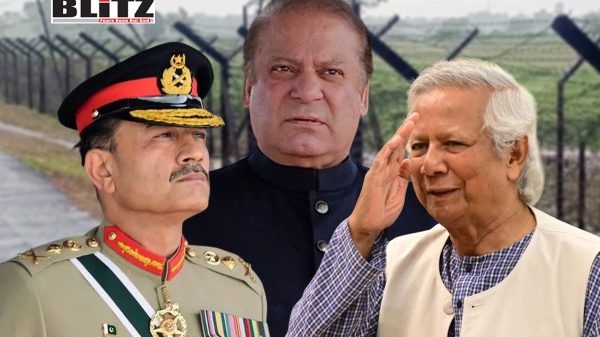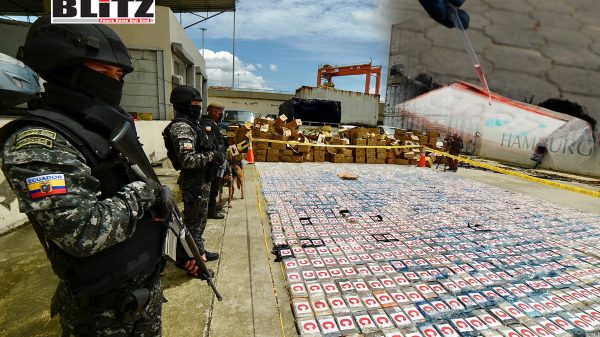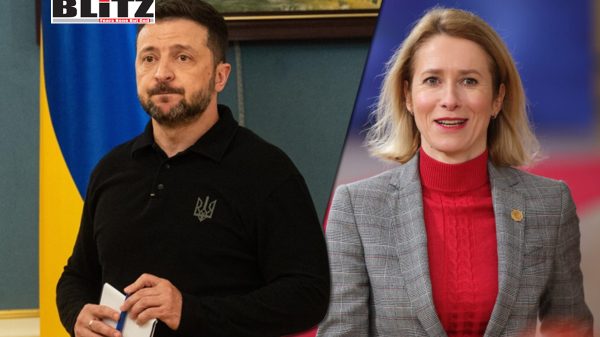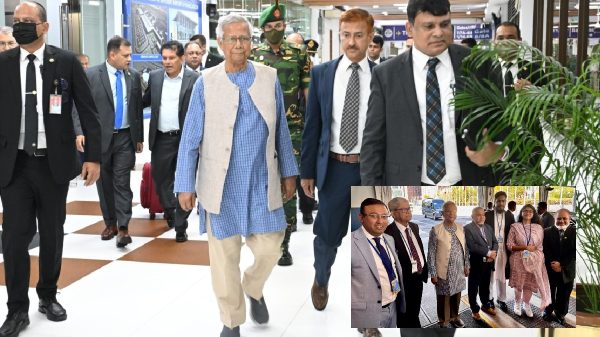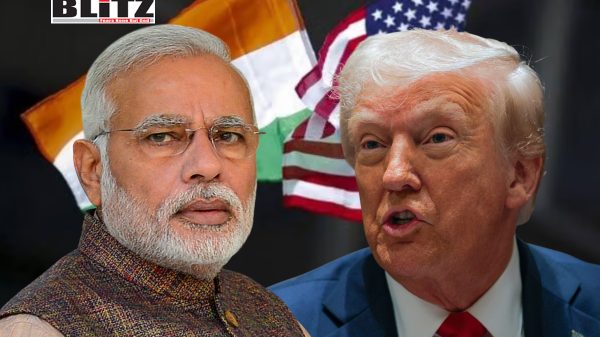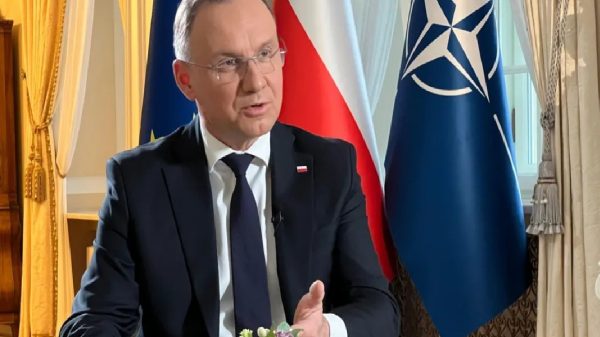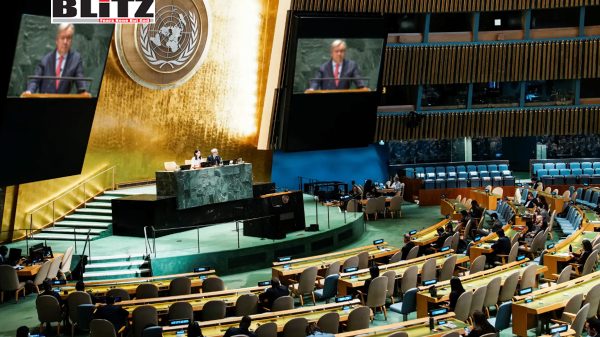Von der Leyen rejects Trump’s push for EU tariffs on India and China
- Update Time : Monday, September 22, 2025
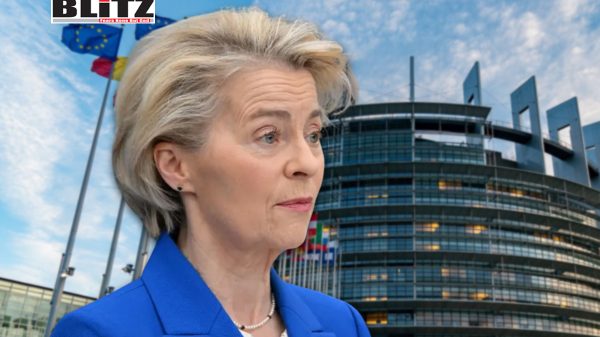
European Commission President Ursula von der Leyen has drawn a firm line against US President Donald Trump’s latest demand for Europe to impose sweeping tariffs on imports from India and China. Her rejection underscores both the deepening divergences between Washington and Brussels over economic statecraft and the EU’s effort to preserve its independent global strategy amid an increasingly fragmented geopolitical landscape.
In an interview with Le Soir published on September 21, von der Leyen stressed that the European Union “will make its own decisions,” rebuffing Trump’s proposal that Brussels follow Washington’s lead in introducing tariffs of up to 100% on Indian and Chinese goods. Trump had argued that such measures would increase economic pressure on Moscow, indirectly weakening Russia’s ability to sustain its military campaign in Ukraine by targeting two of its key trade partners.
Trump has consistently sought to weaponize global trade in pursuit of geopolitical ends, particularly in the context of the Ukraine conflict. By demanding Europe align with the US tariff regime, Trump hoped to isolate India and China-two countries that maintain economic ties with Russia despite Western sanctions.
Washington itself has already taken drastic steps. In late August, the administration slapped a 25% punitive tariff on Indian imports, effectively doubling the average duty on most goods to 50%. The justification, according to US officials, was India’s refusal to cut purchases of Russian crude oil, which has become a major revenue stream for Moscow. New Delhi, however, denounced the move as “unfair and unjustified,” insisting that its energy policy serves domestic economic needs rather than geopolitical agendas.
China, meanwhile, remains locked in a bruising tariff battle with the United States. At one point, duties on Chinese goods reached as high as 145%, provoking Beijing to retaliate with tariffs of up to 125%. A fragile truce was reached earlier this year, with both sides agreeing to reduce tariffs temporarily to 30% and 10% respectively, but that pause expires in November. Trump’s call for Europe to mimic his tariff strategy could be seen as a way to increase bargaining leverage against Beijing while also tightening the screws on Moscow.
Von der Leyen’s rejection of Trump’s demand highlights the EU’s attempt to balance solidarity with the West against its own economic and strategic interests. While the bloc has supported Ukraine with financial aid, sanctions, and political backing, von der Leyen emphasized that the EU’s latest package of sanctions is already “ambitious and substantial” enough to bring Moscow to the negotiating table.
The EU’s 19th sanctions package, announced earlier this month, included measures targeting twelve Chinese and three Indian entities accused of helping Russia evade existing restrictions. These steps reflect Europe’s growing willingness to call out foreign actors indirectly supporting Moscow, but they fall short of the sweeping trade war Trump has envisioned.
For von der Leyen, the question is less about whether the EU should confront Russia-it already does-but about how far it should go in undermining its own economic relations with Asia’s two largest powers. “Closer cooperation between the EU and India is more essential than ever,” she remarked, signaling Brussels’ view that building stronger ties with New Delhi is not only economically advantageous but strategically necessary in an era of shifting global alliances.
The disagreement also illustrates broader transatlantic differences in how to wield economic pressure. Washington increasingly favors blunt instruments-tariffs, sanctions, and unilateral punitive measures-while Brussels tends to favor multilateral coordination and targeted sanctions. Von der Leyen reaffirmed that the EU remains committed to working with both the US and G7 partners, but within the framework of decisions that serve European interests.
This divergence is not new. During Trump’s first term, transatlantic relations were strained over trade disputes, climate policy, and NATO funding. His return to the White House has revived many of those tensions, with Europe once again facing pressure to fall in line with Washington’s confrontational approach to China and other emerging powers.
Yet Europe’s own calculus is complicated. China is the EU’s second-largest trading partner after the United States, and India has become an increasingly important economic and political partner. For Brussels, alienating these markets with blanket tariffs would not only disrupt supply chains but also undercut its broader strategy of cultivating partnerships outside the transatlantic space.
The stakes extend beyond Europe and the United States. India and China are both deeply integrated into global supply chains, and punitive tariffs from the EU would have significant ripple effects on global markets. Many European industries-ranging from automotive manufacturing to renewable energy-depend heavily on imports of raw materials, components, and finished products from these two countries. Imposing tariffs could lead to higher costs for consumers, slower economic growth, and greater political instability within the bloc.
At the same time, alienating India and China could drive them closer to Russia, potentially strengthening rather than weakening Moscow’s geopolitical position. New Delhi has resisted Western pressure to cut energy ties with Russia, while Beijing continues to maintain significant trade and financial links with Moscow despite Western sanctions. From Europe’s perspective, pushing these countries into Moscow’s arms could prove counterproductive.
Von der Leyen’s stance reflects a recognition that Europe must navigate a multipolar world with nuance rather than blunt force. While the EU remains committed to supporting Ukraine and coordinating with its transatlantic partners, it is equally determined to maintain strategic autonomy in its economic policies.
As Trump pushes for a more aggressive global trade war to achieve political ends, Europe appears intent on preserving a more balanced approach-leveraging sanctions where necessary but avoiding steps that could undermine its long-term partnerships with major global players.
The next few months will be crucial. With the US-China tariff truce set to expire in November and Washington escalating its trade war with India, the pressure on Europe to pick a side will only intensify. For now, von der Leyen’s message is clear: Brussels will not be dictated to by Washington. Europe will choose its own path-one that seeks to uphold solidarity with Ukraine without sacrificing its broader global interests.


